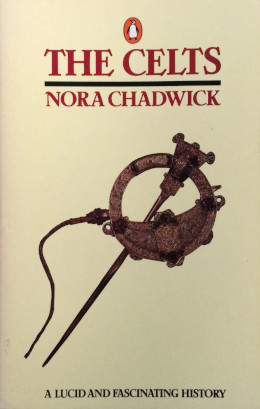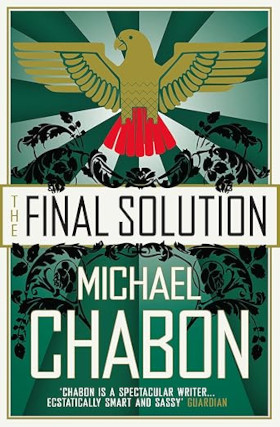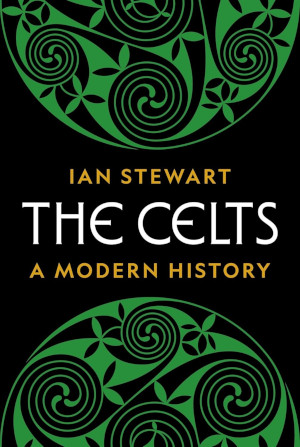I have the Penguin edition of Selected Essays, Poems and Other Writings of George Eliot. So far unread but I did have a look at the introduction because it is by A. S. Byatt, an author I have a lot of time for. Byatt's novel Possession is one of my favourite books. Back in 2013 when I read it, I had not read any Eliot and was unaware of the debt owed to the writer of Middlemarch.
Byatt's introduction starts by quoting the letter William Hale White sent to the Athenaeum magazine in 1885. White was responding to John Walter Cross's Life of Eliot, who had died in 1880. She married Cross quite late in life and he was 21 years her junior. White was not impressed with Cross's work and his letter is a great summary of what made Eliot great.
From the Introduction, and quoting White's letter :
As I had the honour of living in the same house, 142, Strand, with George Eliot for about two years, between 1851 and
1854, I may perhaps be allowed to correct an impression which Mr Cross's book may possibly produce on its readers.
To put it very briefly, I think he has made her too 'respectable'. She was really one of the most sceptical, unusual
creatures I ever knew, and it was this side of her character which was to me the most attractive. She told me that it was
worthwhile to undertake all the labour of learning French if it resulted in nothing more than reading one book -
Rousseau's Confessions. That saying was perfectly symbolical of her, and reveals more completely what she was, at any rate
in 1851-4, than page after page of attempt on my part of critical analysis. I can see her now, with her hair over her
shoulders, the easy chair half sideways to the fire, her feet over the arms, and a proof in her hands, in that dark
room at the back of No. 142, and I confess I hardly recognise her in the pages of Mr Cross's - on many accounts - most
interesting volumes. I do hope that in some future edition, or in some future work, the salt and spice will be
restored to the records of George Eliot's entirely unconventional life. As the matter now stands she has not had full justice
done to her, and she has been removed from the class - the great and noble church, if I may so call it - of the Insurgents,
to one more genteel, but certainly not so interesting.
Not genteel, but insurgent.

The Celts
By Nora Chadwick
I'm interested in Iron Age and "Dark Age" history, especially British, and this means the Celts in particular. It's frustrating however because of the sparse source material. I read Ian Stewart's The Celts a few weeks ago and this rekindled an interest in reading a bit more; with this in mind, I picked up Nora Chadwick's The Celts second-hand.
Chadwick's book is quite different to Stewart's. His is fairly heavy going, with a lot of information in it and quite densely packed. More importantly, it is a "modern" history: that is, how, and by who, the "Celts" were (re)discovered and researched after the Renaissance. It contains little ancient history. It is a detailed, good overview of this modern history.
In contrast, Chadwick's The Celts was published in 1970 and is much more concise. Although it might be a little out of date in places, it is a well written and useful introduction to the ancient history of the Celts: their origins and movement through Europe, the language and culture, social conditions and religion, and also art and literature. It covers a period from the first millenium BC to medieval times. I enjoyed reading this book much more, even though it could be a little repetitive in places, especially when discussing Celtic Art. Art, literature and myth came last in the book, with a greater concentration on the Irish side, of which more writing has been preserved.
I thought the last chapter about literature was well done. She summarised the stories in a few paragraphs and related them to each other (and those of other nations e.g. Irish and Welsh). On the page, myth and folklore can sometimes be a slightly repetitive read, losing the liveliness of an oral or pictorial recitation, but she managed to describe them in an interesting way. I saw some criticism of this book (Amazon I think) regarding it as "by a scholar for scholars". I would disagree about that: for anyone with an interest and a little experience reading a popular history book, this is still a fine introduction. On that score, it is better than Stewart's book.
I've now picked up John Collis's The Celts. I read it a few years ago but am now flicking through it once again.

The Final Solution
By Michael Chabon
I loved Chabon's Yiddish Policeman's Union and have bought a few of his other books on the back of that. This very slim book is one of them.
First published in The Paris Review, it is a "murder mystery" with an old man (we never learn his name) helping a police detective solve a murder and the kidnap of a parrot. Taking place during the Second World War in the south of England, the parrot is a special companion to a German boy, assumed to be Jewish and in England as part of the Kindertransport. This is not clarified however. Neither is the parrot's habit of speaking long strings of numbers e.g. zwei eins sieben fünf vier sieben drei.
I picked this up to read partly because it was so slight, so not a huge investment in time. Like the last book of his I read, it is well written and has a wry humour throughout. The old man is a particularly irascible and funny character. Much is left unsaid regarding the boy's history, or the "numbers" the Parrot is repeating, as well as the "train song" it sometimes sings. This is not as good as the Yiddish Policeman, it seemed a little "light", perhaps too "lightweight". However, still an enjoyable enough read. I am glad I picked up his Yiddish Policeman's Union novel first because I know how good he can be. He won the Pulitzer Prize for The Amazing Adventures of Kavalier & Clay; I am looking forward to reading that.

The Celts
By Ian Stewart
I saw a positive review of this book and I'm interested in iron age history in Britain (including the Celts) so bought it. It was worth reading but not quite what I expected.
It's a dense book and Stewart (an academic at the University of Edinburgh) has done an amazing job researching and describing the "modern" history of the Celts: "modern" history starts with the renewed interest they were shown from the Renaissance onwards, and the history is slowly elucidated through the people doing the (metaphorical) digging. It was back then that some started to consider who the earlier, pre-Roman, peoples of Europe really were and the old "origin" myths began to seem increasingly problematic. Having said that, the biblical fantasy about descent from Noah's grandson Gomer persisted for centuries.
What this history does not do is cover much in the way of archaeology, artifacts or genetics. On occasion we get something dug up or old monument looked at, but the book is mainly a history of the many individual researchers and historians, clubs, societies and (increasingly) academics, and their (often slow) search for the truth. This does complement many of my other books in this field.
There are some people we meet here that deserve some more recognition, including J.C. Prichard, an Anglo-Welsh ethnologist and philologist, who made some crucial advances in the 19th Century identifying where the Celtic languages came from. In particular, the fact that they were descended from the ancient Indo-European family (like German, Latin, Greek and even Sanskrit). Much of the science in the book is the science of Philology, where a language is studied and its branching off from other languages, as well as evolution over time, is investigated. Another man worthy of more note is Johan Kaspar Zeuss, a Bavarian scholar, who toiled to shed light on the origin and history of Europe's languages, eventually producing a major work Grammatica Celtica. He proved the Indo-European origin of the Celtic languages and also the mechanism of their split to the various different forms we know and that exist today (e.g. Old Irish/Irish Gaelic, Breton, Welsh etc.). All of the work he did was on the continent using sources of Old Irish hidden away in monasteries for hundreds of years. Finally, it was seen that, although it was a sibling language to Celtic on the Indo-European tree, German was not itself Celtic. This sort of question has confused matters since Caesar himself.
An interesting book that covers the huge French and (particularly) German contribution, as well as the major (and minor) work done in Wales, Scotland, Ireland and England. In the end, however much has been discovered about the ancient Celts, the core element of their presence, today and in the past, is the language. Although much diminished, they are still living languages. This book was hard work sometimes because it is quite slow and detailed, so it will not be for everyone (although that's not it's aim). It will be a worthwhile read for those that want to know how the history has been worked out over the past few centuries however.

A Science Fiction Omnibus
Edited by Brian Aldiss
Science-fiction grew as a genre via the medium of the short story as the pulps of the 1930's and later exploded in popularity. The longer form of the novel started replacing these as paperbacks became a cheap reading option, especially by the 1950's. All the well known "classic" science-fiction authors like Asimov, Clarke, Vance, van Vogt, Pohl, Dick and others began their career selling short stories. This means there are a fantastic number of these in existence and some are very good indeed. Sometimes the author expands or coalesces one or more short stories into a novel (for instance, Asimov's Foundation series); sometimes the shorter version is the superior version. A novel composed of shorts stitched together is often called a "fix-up" (such as Keith Roberts' Pavane).
I have quite a few SF short story anthologies, many being Nebula or Hugo award winner books of the year. There are some highly rated among them and it was past time I read some. Brian Aldiss has good taste so I decided to pick up an anthology edited by him: A Science Fiction Omnibus, published by Penguin in 2007 (but with a history going back to the early 1960's).
I've previous read two stories from this collection, both memorable: Swarm by Bruce Sterling and Story of Your Life by Ted Chiang.
Swarm is a story of humans discovering that intelligence is not always required for survival, and if it is needed, can be "spun up". The humans here, members of his "shaper" faction, bite off a bit more than they expect when infiltrating and attempting to exploit a huge, insectoid-like alien world. I enjoyed it again.People might know the Chiang story Story of Your Life from the 2016 film Arrival, directed by Denis Villeneuve (the book has none of the exciting pyrotechnics in the film). It centers on language and the alien-ness of not just the visitors but the way they communicate. It's quite cerebral and hard to understand on occasion but this doesn't detract from the interesting premise and the writing is good.
The A.E. van Vogt story Fulfilment was quite relevant to today's concerns about "AI" and the march towards a conscious and intelligent computer. I haven't read much van Vogt but his clipped and direct style is something I grew to like. This is the tale of a "brain" (i.e. an AI) that is trying to subvert or combat another, similar "brain" it comes across. Humans might get in the way.
The last story was slightly longer and by an author I haven't read before, John Crowley. This is the "time travel" tale Great Work of Time, and concerns the difficulties keeping the world straight, even with the utmost caution, when attempting to change things to prevent "bad" outcomes. It's a very well written story with a melancholic air about it. The concept of "time travel" is full of possibilities and I doubt will be exhausted soon. I will look to read more Crowley.
I was surprised to find a story by John Steinbeck, author of The Grapes of Wrath. The short tale called The Short Short Story of Mankind is a jokey take on the very rough nature of human existence from the cave onwards, perhaps towards some sort of civilisation. It's very sardonic and we might laugh at the ignorance and dysfunction but also recognise how thin the ice is to a decent life.
I was less impressed with some of the tales, perhaps the Asimov (Nightfall, Jokester), which I thought mediocre. James Tiptree, Jr was an author I've been looking forward to reading but thought And I Awoke and Found Me Here on the Cold Hillside a bit disappointing. However, it is a story where thought is required: that with alien contact, humans could become merely "groupies", obsessed with chasing alien attention. I'll need to read more Tiptree, Jr to decide if I like her writing. Sometimes you need to take some time to consider what is being said: they're not always direct. Like the Tiptree, Jr., the Damon Knight story The Country of the Kind is another story I had some difficulty with; that is, understanding the point. But as James Wallace Harris discusses on his (excellent) Classics of Science Fiction blog, it is a famous and very well respected story that needs a bit of thought in order to work out meaning.
It was a great refresher to read a set of curated short stories for a change, and a wide set of authors. Yes, "entertainment" is great but that does not mean "easy" or trite; sometimes you have to be challenged as well. Science Fiction is often a very good way to do that.
Last year, I wrote about ransomware attacks (for the second time). I think there have been many since then but you do not hear about most of them. It can be absolutely devastating personally when you're the victim of one of these criminal attacks. The costs to an organisation or government are even higher. I think they might even cause a business to fail in some circumtances.
The recent news is that Marks and Spencer, a British retailer, has been hit by a "cyberattack", and it looks like it is ransomware. There's a write-up at Bleeping Computer and a few details are given. It is very hard to know how to protect yourself from this sort of thing, or deal with the aftermath. There are obvious protections but I think the defence is always behind the offence and it's increasingly trite to just push the messages to "patch your systems" or update your "antivirus".
It looks like something has been going on at the Co-op as well. A "hack"? It's a bit suspicious with all news coming out from them just now. The lead at the BBC article linked is :
Staff at the Co-op are being ordered to keep their cameras on during remote work meetings, and verify all attendees, as the company deals with an ongoing cyber attack.
Well ... great. But I recall that, not so long ago, a company was conned into doing a multi-million dollar transfer by criminals faking a voice on a telephone call (The Guardian) :
The British engineering company Arup has confirmed it was the victim of a deepfake fraud after an employee was duped into sending HK$200m (£20m) to criminals by an artificial intelligence-generated video call.
That is a lot of money. I think the "AI" is getting good enough to be on video now perhaps, so I think that all bets are off!



